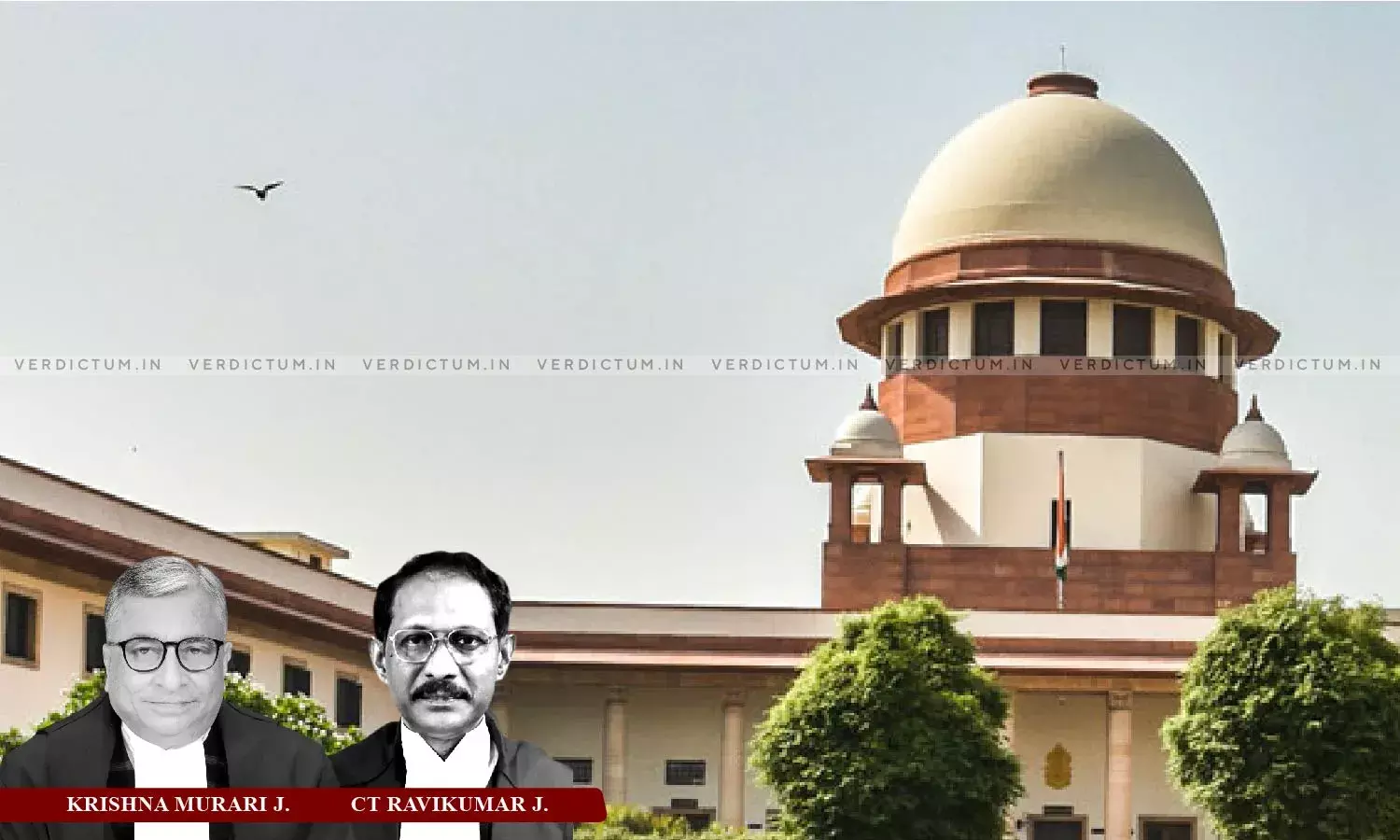Probe Agency Cannot File Chargesheet Without Completing Investigation, Such Chargesheet If Filed Doesn’t Extinguish Right To Default Bail: SC

In a landmark judgment, the Supreme Court has held that without completing the investigation of a case, a chargesheet or prosecution complaint cannot be filed by an investigating agency to deprive an arrested accused of his right to default bail.
The Court further added that such a chargesheet, if filed by an investigating authority without first completing the investigation, would not extinguish the right to default bail. The Court also noted that in such cases the Trial court cannot continue to remand an arrested person beyond the maximum stipulated time without offering the arrested person default bail.
The bench of Justice Krishna Murari and Justice C. T. Ravikumar made these observations while dealing with a plea by the wife of the accused wherein the remand of the accused was renewed on grounds of investigation not being completed and was continued from time to time, and he was never released on default bail. Subsequently, the petitioner sought to incorporate additional grounds and prayers for seeking bail which was allowed by the Apex Court and interim bail was granted.
Advocate Sujay Kantawala appeared for the petitioner whereas ASG K M Nataraj appeared for Union of India.
The Court noted that Section 167(2) of the Cr.PC was enacted to ensure that the investigating agency completes the investigation within the prescribed time limit, failing which no accused could be detained if they are willing to avail bail.
The Court noted that the right of statutory bail, is extinguished, if the charge sheet is filed within the stipulated period. The Court added that the question of resorting to a supplementary chargesheet u/s 173(8) of the Cr.PC only arises after the main chargesheet has been filed, and as such, a supplementary chargesheet, wherein it is explicitly stated that the investigation is still pending, cannot under any circumstance, be used to scuttle the right of default bail.
“The question of resorting to a supplementary chargesheet u/s 173(8) of the Cr.PC only arises after the main chargesheet has been filed, and as such, a supplementary chargesheet, wherein it is explicitly stated that the investigation is still pending, cannot under any circumstance, be used to scuttle the right of default bail, for then, the entire purpose of default bail is defeated, and the filing of a chargesheet or a supplementary chargesheet becomes a mere formality, and a tool, to ensue that the right of default bail is scuttled.”, the Court held.
The Court pointed out that if chargesheets are allowed to be filed without completing the investigation, and the same can be used for prolonging remand, it would in effect negate the purpose of introducing section 167(2) of the CrPC and ensure that the fundamental rights guaranteed to accused persons is violated.
The Court noted that in the present case, the trial court mechanically accepted the incomplete chargesheets filed by the Investigating Agency, and further continued the remand of the accused beyond the maximum period specified thus acting arbitrarily.
“While there is no doubt in our minds that arrest and remand are extremely crucial for the smooth functioning of the investigation authority for the purpose of attaining justice, however, it is also extremely important to be cognizant of a power imbalance. Therefore, it becomes essential to place certain checks and balances upon the Investigation Agency in order to prevent the harassment of accused persons at their hands.”, the Court asserted.
Thus the Court held “…interim order of bail passed in favor of the accused is made absolute, and the present writ petition is, accordingly, disposed of.”
Cause Title- Ritu Chhabaria v. Union Of India & Ors
Click here to read/download Judgment

